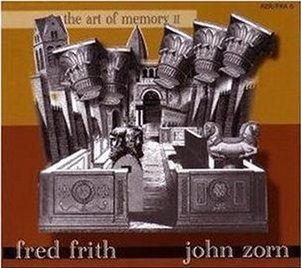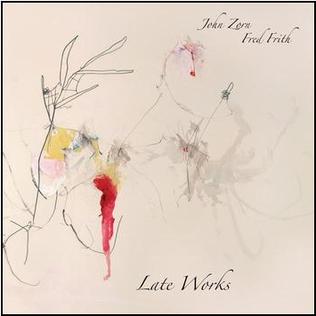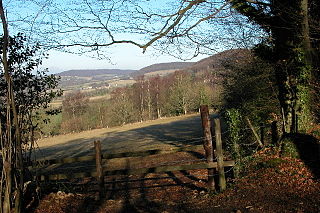
Bodyline, also known as fast leg theory bowling, was a cricketing tactic devised by the English cricket team for their 1932–33 Ashes tour of Australia, specifically created to combat the extraordinary batting skill of Australia's Don Bradman. A bodyline delivery was one where the cricket ball was bowled at the body of the batsman, in the hope that when he defended himself with his bat, a resulting deflection could be caught by one of several fielders standing close by.
Frith is an Old English word meaning "peace; protection; safety, security".

Jeremy Webster "Fred" Frith is an English multi-instrumentalist, composer, and improvisor.

William Powell Frith was an English painter specialising in genre subjects and panoramic narrative works of life in the Victorian era. He was elected to the Royal Academy in 1853, presenting The Sleeping Model as his Diploma work. He has been described as the "greatest British painter of the social scene since Hogarth".
Simon Webster Frith OBE is a British sociomusicologist, and former rock critic, who specializes in popular music culture. He is Tovey Chair of Music at University of Edinburgh.
David Edward John Frith is a cricket writer and historian. Cricinfo describes him as "an author, historian, and founding editor of Wisden Cricket Monthly".
Pop rock is rock music with a greater emphasis on professional songwriting and recording craft, and less emphasis on attitude. Originating in the late 1950s as an alternative to normal rock and roll, early pop rock was influenced by the beat, arrangements, and original style of rock and roll. It may be viewed as a distinct genre field rather than music that overlaps with pop and rock. The detractors of pop rock often deride it as a slick, commercial product, less authentic than rock music.

Francis Frith was an English photographer of the Middle East and many towns in the United Kingdom. Frith was born in Chesterfield, Derbyshire, attending Quaker schools at Ackworth and Quaker Camp Hill in Birmingham, before he started in the cutlery business. He suffered a nervous breakdown in 1843, recuperating over the next two years. In 1850 he started a photographic studio in Liverpool, known as Frith & Hayward. A successful grocer, and later, printer, Frith fostered an interest in photography, becoming a founding member of the Liverpool Photographic Society in 1853. Frith sold his companies in 1855 in order to dedicate himself entirely to photography. He journeyed to the Middle East on three occasions, the first of which was a trip to Egypt in 1856 with very large cameras. He used the collodion process, a major technical achievement in hot and dusty conditions.

Frederick Lee Frith OBE was a British Grand Prix motorcycle road racing world champion. A former stonemason and later a motor cycle retailer in Grimsby, he was a stylish rider and five times winner of the Isle of Man TT. Frith was one of the few to win TT races before and after the Second World War.

Uta Frith is a German developmental psychologist working at the Institute of Cognitive Neuroscience at University College London. She has pioneered much of the current research into autism and dyslexia, and has written several books on the two subjects arguing for autism to be considered a mental condition rather than being caused by parenting. Her book Autism: Explaining the Enigma introduces the cognitive neuroscience of autism. She is credited for creating the Sally-Anne test along with fellow scientist Alan Leslie and Simon Baron-Cohen. She also pioneered the work with child dyslexia. Among the students she has mentored are Tony Attwood, Maggie Snowling, Simon Baron-Cohen and Francesca Happé.

Fred Records is a British independent record label created in 2002 by the English guitarist, composer and improvisor Fred Frith to re-release his own back catalogue of recordings and previously unreleased material. It is an independent company working in co-operation with Chris Cutler and Recommended Records, utilising Recommended Records' distribution network.

The Happy End Problem is a studio album by English guitarist, composer and improvisor Fred Frith, and is the fifth of a series of Music for Dance albums he made. It comprises two suites composed in 2003 by Frith "for flute, bassoon, gu zheng, percussion, violin and electronics" and was recorded in 2003 and 2004.

The Art of Memory II is a live album of improvised experimental rock music by Fred Frith and John Zorn. It was recorded in New York City in January 1983 and July 1985, and was released on Frith's Fred Records label in May 2008. It is the second in a series of two Art of Memory albums recorded by the duo, the first being The Art of Memory, recorded in New York City in late 1993, and released on Derek Bailey's Incus Records label in 1994.
Richard Michael Cockayne Frith is a British retired Anglican bishop who served as Bishop of Hull and Bishop of Hereford.

Late Works is a studio album by John Zorn and Fred Frith. It is the fourth collaborative album by the duo, and their first studio album. It was recorded at East Side Sound in New York City on October 16, 2009, and was released by Tzadik Records in April 2010.
Art pop is a loosely defined style of pop music influenced by pop art's integration of high and low culture, and which emphasizes the manipulation of signs, style, and gesture over personal expression. Art pop artists may be inspired by postmodern approaches or art theories as well as other forms of art, such as fashion, fine art, cinema, and avant-garde literature. They may deviate from traditional pop audiences and rock music conventions, instead exploring ideas such as pop's status as commercial art, notions of artifice and the self, and questions of historical authenticity.

Chapel-en-le-Frith is a town and civil parish in Derbyshire, England.

Bull Cross, The Frith and Juniper Hill is a 42.33-hectare (104.6-acre) biological and geological Site of Special Scientific Interest in Gloucestershire, notified in 1954. The site is listed in the ‘Stroud District’ Local Plan, adopted November 2005, Appendix 6 as an SSSI and Regionally Important Geological Site (RIGS).

Duo (Victoriaville) 2005 is a 2006 live album of improvised music by Anthony Braxton and Fred Frith. It was recorded on May 20, 2005 at the 22nd Festival International de Musique Actuelle de Victoriaville in Quebec, Canada, and released in May 2006 by Les Disques Victo, the festival's record label.

Dalaba Frith Glick Rieman Kihlstedt, also stylized as DalabaFrithGlickRiemanKihlstedt, is a 2003 studio album of improvised experimental music by Lesli Dalaba, Fred Frith, Eric Glick Rieman and Carla Kihlstedt. It was recorded at Guerrilla Recording in Oakland, California, and was released by Accretions Records in San Diego, California in 2003.













